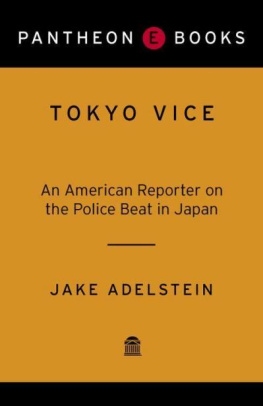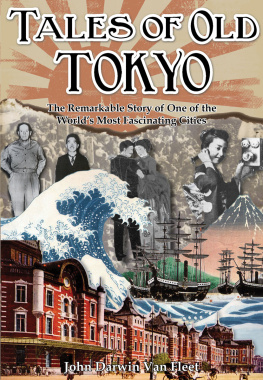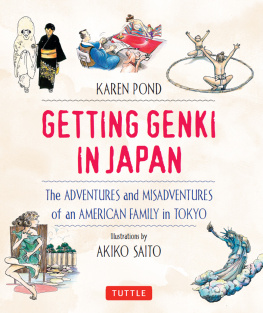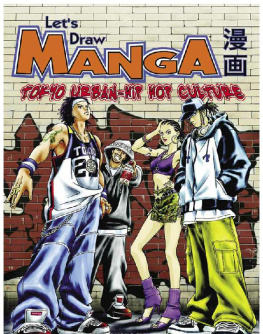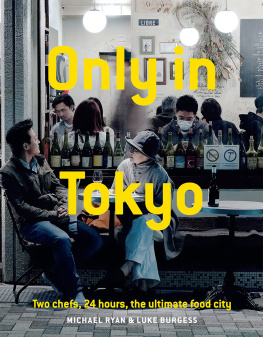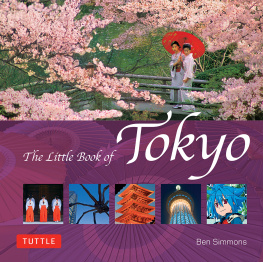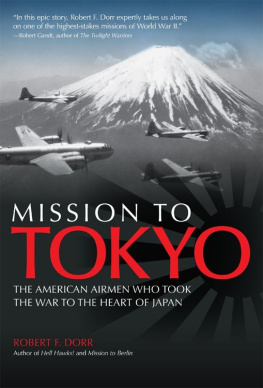Adelstein - Tokyo Vice: An American Reporter on the Police Beat in Japan
Here you can read online Adelstein - Tokyo Vice: An American Reporter on the Police Beat in Japan full text of the book (entire story) in english for free. Download pdf and epub, get meaning, cover and reviews about this ebook. year: 2009, publisher: Pantheon, genre: Detective and thriller. Description of the work, (preface) as well as reviews are available. Best literature library LitArk.com created for fans of good reading and offers a wide selection of genres:
Romance novel
Science fiction
Adventure
Detective
Science
History
Home and family
Prose
Art
Politics
Computer
Non-fiction
Religion
Business
Children
Humor
Choose a favorite category and find really read worthwhile books. Enjoy immersion in the world of imagination, feel the emotions of the characters or learn something new for yourself, make an fascinating discovery.
- Book:Tokyo Vice: An American Reporter on the Police Beat in Japan
- Author:
- Publisher:Pantheon
- Genre:
- Year:2009
- Rating:3 / 5
- Favourites:Add to favourites
- Your mark:
- 60
- 1
- 2
- 3
- 4
- 5
Tokyo Vice: An American Reporter on the Police Beat in Japan: summary, description and annotation
We offer to read an annotation, description, summary or preface (depends on what the author of the book "Tokyo Vice: An American Reporter on the Police Beat in Japan" wrote himself). If you haven't found the necessary information about the book — write in the comments, we will try to find it.
Adelstein: author's other books
Who wrote Tokyo Vice: An American Reporter on the Police Beat in Japan? Find out the surname, the name of the author of the book and a list of all author's works by series.
Tokyo Vice: An American Reporter on the Police Beat in Japan — read online for free the complete book (whole text) full work
Below is the text of the book, divided by pages. System saving the place of the last page read, allows you to conveniently read the book "Tokyo Vice: An American Reporter on the Police Beat in Japan" online for free, without having to search again every time where you left off. Put a bookmark, and you can go to the page where you finished reading at any time.
Font size:
Interval:
Bookmark:


Dedicated to
Detective Sekiguchi,
who taught me what it was to be an honorable man. Im trying.
My father,
who has always been my hero and who taught me to stand up
for whats right.
The Tokyo Metropolitan Police Department and the
Federal Bureau of Investigation,
for protecting me and my friends and family, and for their constant
efforts to keep the forces of darkness in check.
Those whom I loved and who have left and will not return.
You are missed and remembered.

Meeting is merely the beginning of separation.
Japanese proverb
Part 1 
Part 2 
Part 3 
Either erase the story, or well erase you. And maybe your family. But well do them first, so you learn your lesson before you die.
The well-dressed enforcer spoke very slowly, the way people speak to idiots or children or the way Japanese sometimes speak to clueless foreigners.
It seemed like a straightforward proposition.
Walk away from the story and walk away from your job, and itll be like it never happened. Write the article, and there is nowhere in this country that we will not hunt you down. Understand?
Its never a smart idea to get on the bad side of the Yamaguchi-gumi, Japans largest organized crime group. With about forty thousand members, its a lot of people to piss off.
The Japanese mafia. You can call them yakuza, but a lot of them like to call themselves gokudo, meaning literally the ultimate path. The Yamaguchi-gumi is the top of the gokudo heap. And among the many subgroups that make up the Yamaguchi-gumi, the Goto-gumi, with more than nine hundred members, is the nastiest. They slash the faces of film directors; they throw people from hotel balconies; they drive bulldozers into peoples houses. Stuff like that.
The man sitting across the table and offering me this deal was from the Goto-gumi.
He didnt make the proposal in a menacing way. He didnt sneer or squint his eyes. Except for the dark suit, he didnt even look like a yakuza. He had all his fingers. He didnt roll his rs like the heavies in the movies. If anything, he was more like a slightly surly waiter at a fancy restaurant.
He let the ash from his cigarette fall onto the carpet, then stubbed it out undramatically in the ashtray. He lit up another with a gold-plated Dunhill. He was smoking Hope. White box, block lettersreporters notice stuff like thatbut they werent standard Hope cigarettes. They were the half-size, stubby version. Higher nicotine; lethal.
The yakuza had come to this meeting with one other enforcer, who said absolutely nothing. The Silent One was thin and dark with a horselike face, and he had a messy long haircut dyed orangethe chahatsu look. He had on an identical dark suit.
I had come with backup, a low-ranking cop formerly assigned to the AntiOrganized Crime Task Force in Saitama Prefecture. Chiaki Sekiguchi. He was a little taller than I, almost as dark, thickset with deep-set eyes and a 1950s Elvis haircut. He was mistaken for a yakuza a lot. If hed gone the other way, Im sure he would have been a well-respected crime boss. He was a great cop, a good friend, my mentor in a lot of ways, and he had volunteered to come along. I glanced at him. He raised his eyebrows, cocked his head, and shrugged his shoulders. He wasnt going to give me any more advice. Not now. I was on my own.
Do you mind if I smoke a cigarette while I think this over?
Be my guest, the yakuza said, more diffident than I.
I pulled a pack of Gudang Garam, Indonesian clove cigarettes, out of my suit jacket. They were loaded with nicotine and tar, and they smelled like incense, which reminded me of my days living in a Zen temple during college. Maybe I should have become a Buddhist monk. It was a little late now.
I stuck one in my mouth, and as I fumbled for a lighter, the enforcer deftly flicked his Dunhill and held it close until he was sure it was lit. He was very accommodating. Very professional.
I watched the thick smoke waft in concentric circles from the tip of the cigarette; the burning clove leaves embedded in the tobacco snapped and crackled as I inhaled. It seemed to me that the whole world had gone quiet and this was the only sound I could hear. Snapping, crackling, sparking. Cloves tend to do that. I was hoping the sparks wouldnt burn a hole in my suit or hisbut then again, after further reflection, I decided I didnt really care.
I didnt know what to do or say. Not a clue. I didnt have enough material to write the story. Hell, it wasnt a story. Yet. He didnt know that but I did. I had only enough information to have gotten me into this unpleasant face-off.
Maybe there was a bright side to this whole problem. Maybe it was time to go home. Yeah, maybe I was tired of working eighty-hour weeks. Maybe I was tired of coming home at two in the morning and leaving at five. I was tired of always being tired.
Tired of chasing after scoops. Tired of being scooped by the competition. Tired of facing six deadlines a daythree in the morning for the evening edition and three at night for the morning edition. Tired of waking up with a hangover every other day.
I didnt think he was bluffing. He seemed very sincere. As far as he was concerned, the story I was trying to write would kill his boss. Not directly, but that would be the result. That would be his oyabun, his surrogate father. Tadamasa Goto, the most notorious Japanese gangster of them all. So naturally, he would feel justified in killing me.
However, if I lived up to my end of the bargain, would they keep theirs? The real problem was that I couldnt write the story. I didnt have all the facts yet. But I couldnt let them know that.
All I knew was this: In the summer of 2001, Tadamasa Goto had gotten a liver transplant at the Dumont-UCLA Liver Cancer Center. I knew, or thought I knew, who the doctor was who had performed the transplant. I knew about how much Goto had allegedly spent to get his liver: close to $1 million according to some sources, $3 million according to others. I knew that some of the money to pay for his hospital expenses had been sent from Japan to the United States via the Tokyo branch office of a Las Vegas casino. What I didnt know was how a guy like that had gotten into the United States in the first place. He must have forged a passport or bribed a Japanese politician or a U.S. politician. Something was fishy. He was on the watch list of U.S. Customs and Immigration, the FBI, the DEA. He was blacklisted. He shouldnt have been able to get into the United States.
I was sure that there was a great story behind the journey of Goto and his operation. Its why Id been working on it for months. I could only guess that while I was working on the story someone ratted me out.
I noticed that my hands were shaking. The cigarette seemed to have evaporated in my fingers while I was thinking.
I lit a second cigarette. And I thought to myself, how the hell did I end up here?
Font size:
Interval:
Bookmark:
Similar books «Tokyo Vice: An American Reporter on the Police Beat in Japan»
Look at similar books to Tokyo Vice: An American Reporter on the Police Beat in Japan. We have selected literature similar in name and meaning in the hope of providing readers with more options to find new, interesting, not yet read works.
Discussion, reviews of the book Tokyo Vice: An American Reporter on the Police Beat in Japan and just readers' own opinions. Leave your comments, write what you think about the work, its meaning or the main characters. Specify what exactly you liked and what you didn't like, and why you think so.

